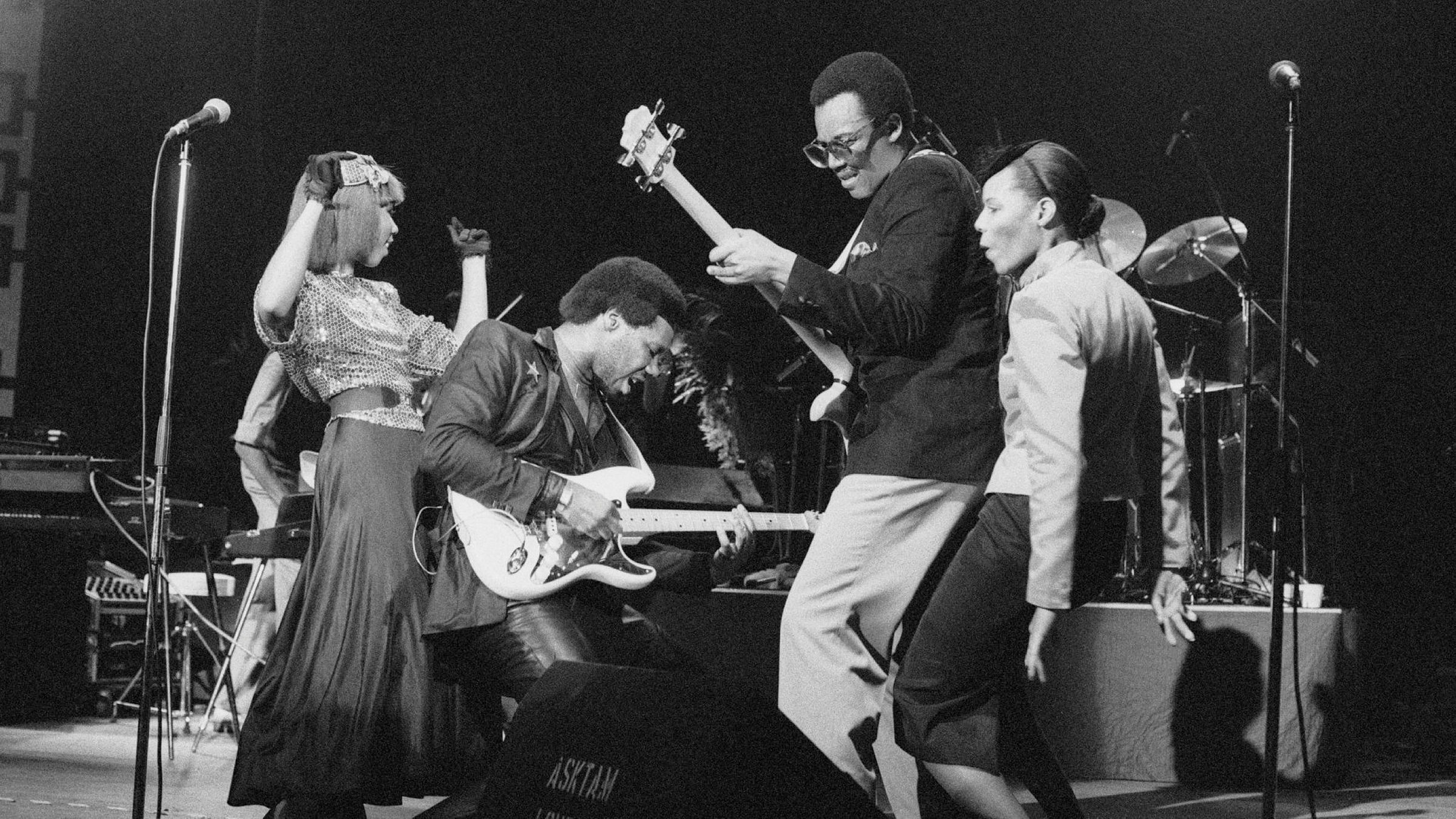On New Year’s Eve 1977, Nile Rodgers and Bernard Edwards — founders of the disco band Chic — were denied entry to Studio 54 in New York. Dressed to advantage in black ties and Cerruti dinner jackets, they waited until 1am outside the club in the snow hoping that Grace Jones, who had invited them, would notice they were missing. She didn’t.
The duo trudged home, bought some weed, cocaine and a bottle of champagne and began work on what would become their best known album. They started in the early hours with a song called “Fuck Off”, which changed to “Freak Off”, then “Freak Out”, then finally “Le Freak”. The album, C’est Chic, came to define the disco movement, a genre criticised at the time for choosing escapism over political struggle. But, as Peter Shapiro writes in Turn the Beat Around, his luminous history of the genre, “in a climate of stagnation, when the country at large was being held hostage by Opec [and] NYC owed fealty to the bond-issuing robber barons… the only possible reaction was escapism.”
C’est Chic, released in 1978, went on to sell more than 6m copies in the US alone, which is no surprise considering the tracklist includes classics such as “Le Freak” and “I Want Your Love”. Less well known is a seven-minute song called “At Last I Am Free”.
A departure from the rest of the album, “At Last I Am Free”comes in slow, following Andy Schwartz’s slurred piano and Edwards’ wandering bass licks. Chic had recruited vocalist Alfa Anderson in 1978, and it’s her voice that leads the track, lingeringat the end of each line. Far from the escapism of the disco scene, “At Last I Am Free” is a vulnerable admission of disenchantment and alienation: “I’m lonely, please hold me, come closer, my dear/ It feels so good just havin’ you near / But who am I foolin’ when I know it’s not real / I can’t hide all this hurt and pain inside I feel.” It’s disco’s cracked soul.
One musician who noted the track’s profundity was Robert Wyatt, who recorded it in 1980. At first glance, it was an odd choice. Wyatt had been releasing series of political cover singles for the Rough Trade label and “At Last I Am Free” found its place amid idiosyncratic versions of “The Red Flag”, a version of the Cuban anthem “Guantanamera” (called “Caimanera”), and what remains his best-loved song, “Shipbuilding”, Elvis Costello and Clive Langer’s lament for the folly of the Falklands war.
But Wyatt knew a decent pop song when he heard one and also perhaps unconsciously hit on the fact that “At Last I Am Free” had a political context. Rodgers had written the lines some years earlier at the height of the American civil rights movement, when he was a subsection leader of the Lower Manhattan branch of the Black Panther party.
Wyatt has spoken about how he enjoyed swapping Chic’s New York pronunciations for his characteristic Kent accent (particularly on the word “last”). His coverstrips the song back, swapping in a hypnagogic piano line and a more stable, continuous drum loop. The cover stumbles forward, Wyatt’s wavering falsetto gliding above it like a high wind over marshland.
Wyatt’s version is so affecting that, for many, it now defines the song. Indeed, Green Gartside, touring with Scritti Politti for the first time post-lockdown, performed Wyatt’s take on “At Last I Am Free” as an encore each night, together with Hot Chip’s Alexis Taylor, introducing it as “a cover of a cover”.
A few others have tried to capture the song. The experimental German band Cassiber included a mostly instrumental rendition on their 1984 album Beauty & The Beast. Their take is driven by chaotic, improvised saxophone. The Cassiber formula is to break the song out of its melancholia, splitting it apart with screeching solos and jazz drum breaks.
In 2003, Elizabeth Fraser of the Cocteau Twins recorded the song for a celebration of 25 years of Rough Trade. Her interpretation is more synth-heavy than its predecessors, centred around a mantric repetition of the word “free”, ascending trancelike to the chorus.
“At Last I Am Free” began life as an unexpected stowaway in the disco canon, but it has evolved to fit an occasion of deep reflection. We’ve all been there. That liberating moment when the party’s raging around you, but, with sudden, dizzying clarity, you realise you’re just not feeling it.
What are your memories of ‘At Last I Am Free?’ Let us know in the comments section below.
‘The Life of a Song Volume 2: The fascinating stories behind 50 more of the world’s best-loved songs’, edited by David Cheal and Jan Dalley, is published by Brewer’s.
Music credits: Rhino; Domino
Picture credit: Kevin Cummins/Getty Images
